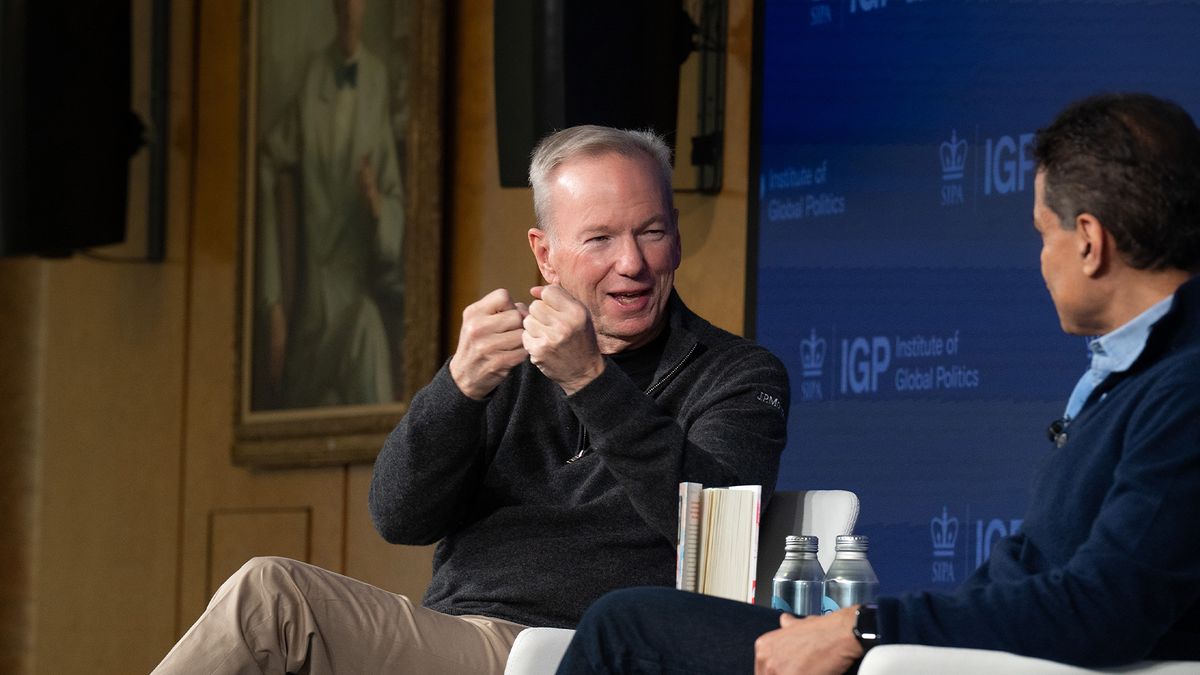Ex-Google CEO Eric Schmidt has aired his feelings on AI sustainability, minimizing the place of conservation as part of a fireside chat at a US think tank.
After listing some of the potential remedies to data center power consumption – better battery materials and reductions in power line losses, for example – Schmidt said sustainable objectives may end up taking a back seat.
“All of that will be swamped by the enormous needs of this new technology,” Schmidt said.
“Because it’s the arrival of an alien intelligence, right – something we don’t understand – we may make mistakes with respect to how it’s used, but I can assure you that we’re not going to get there through conservation,” he added.
Schmidt’s thinking is that economic decision-making would drive the push toward energy efficiency instead, as firms look to avoid large power bills.
When the interviewer asked whether it was possible to meet AI energy demands while keeping pace with climate goals, Schmidt responded that the technology itself might actually solve some of the issues.
“My own opinion is that we’re not going to hit the climate goals anyway, because we’re not organized to do it,” Schmidt said.
“Yes, the needs in this area will be a problem, but I’d rather bet on AI solving the problem than constraining it and having the problem,” he added.
Schmidt’s comments here may run counter to some opinion in the industry, especially when carbon emissions are spiraling at most of the big tech companies on the back of generative AI.
A study from Morgan Stanley recently predicted that the data center industry would create 2.5 billion tons of carbon through 2030, an estimated three-times the figure if generative AI weren’t in the picture.
With new research focused on driving data center efficiencies and creating sustainable AI infrastructure, Schmidt’s suggestion to let the climate take a back seat could spark yet more controversy for the former Google chief exec.
Industry stakeholders, environmental groups, and governments alike have raised serious concerns about the ecological impact of data center infrastructure globally in recent years.
That being said, his suggestion that AI itself may offer some sustainable improvements has some merit. Some industry figures have noted the potential for leveraging AI to identify and unlock greater efficiencies for data center providers to reduce environmental impact.
“If we are to have any chance of meeting sustainability targets, we need to deploy technology that will help industrial enterprises decarbonize, improve circularity, and transition to less resource-intensive practices,” Lisa Wee, Global Head of Sustainability at AVEVA, told ITPro.
“Most companies have so much data they struggle to make use of it. By unifying data into a digital backbone, visualizing it, and enhancing it with AI, organizations can find more sustainable ways of working,” she added.
Schmidt’s no stranger to potentially controversial remarks. In August, he claimed that Google had begun to trail in the generative AI race owing to lax remote work policies.
The comments, which came in an interview with Stanford University students, sparked a fierce backlash from industry stakeholders over what some described as archaic views toward flexible working policies.
Source link
